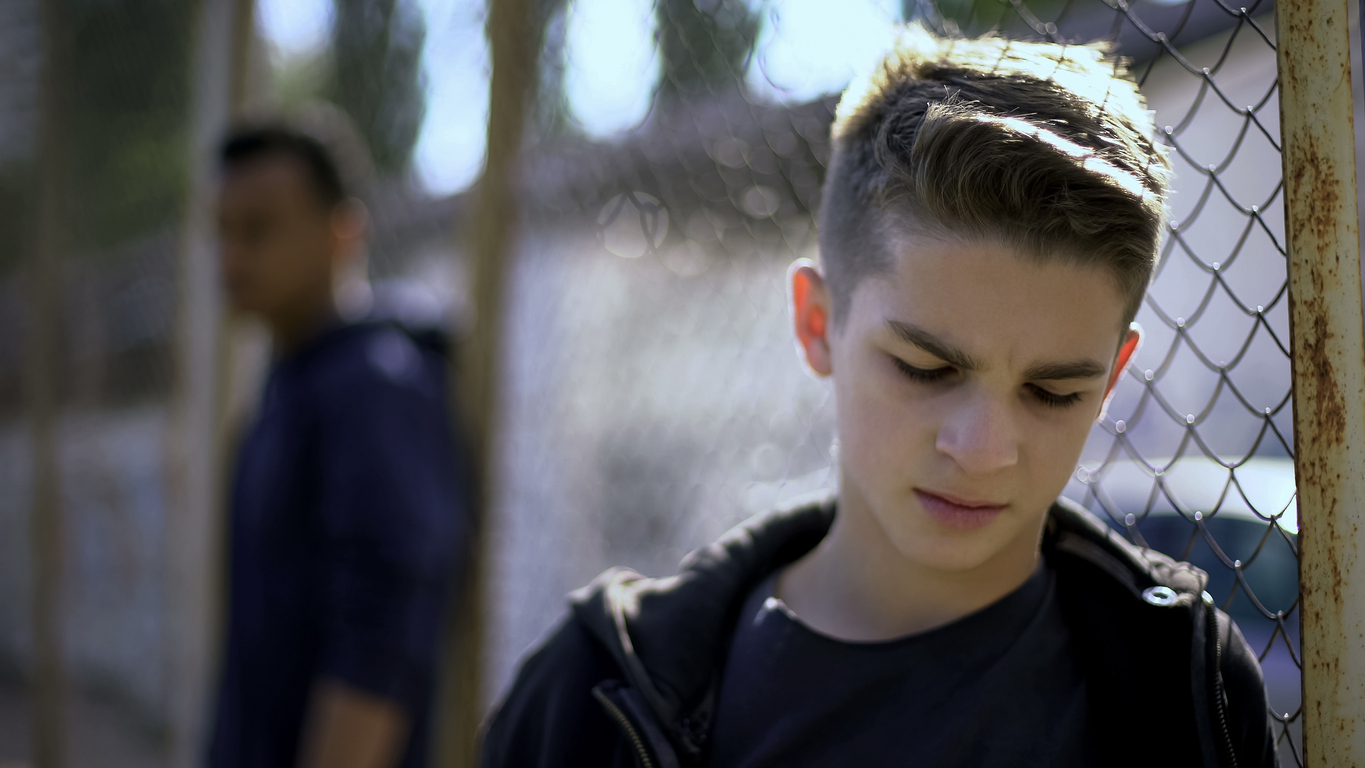
In today’s society, concerns surrounding juvenile crime and violence have become increasingly prevalent. One serious offense that can have far-reaching consequences is a juvenile weapons charge. In the state of Maryland, where strict firearm laws are enforced, the repercussions of such charges can be particularly severe. In this blog post, we will explore the potential consequences that a juvenile may face if charged with a weapons offense in Maryland.
Criminal Record:
A juvenile weapons charge in Maryland can have a lasting impact on a young person’s future. If convicted, the offense will be recorded on their criminal record, potentially affecting their ability to pursue higher education, gain employment, or secure housing in the future. Having a criminal record at such a young age can limit opportunities and create barriers to success.
Legal Penalties:
Maryland has enacted stringent laws regarding the possession, use, and carrying of firearms, including those specifically aimed at minors. Penalties for a juvenile weapons charge can vary depending on the specific circumstances, the type of weapon involved, and the intent of the individual. These penalties may include fines, probation, mandatory counseling or rehabilitation programs, and in some cases, juvenile detention or placement in a youth correctional facility.
Juvenile Detention or Placement:
In Maryland, if a juvenile is found guilty of a weapons charge, they may face incarceration in a juvenile detention center. The duration of the sentence can vary depending on the severity of the offense, the minor’s criminal history, and the judge’s discretion. Placement in a youth correctional facility not only disrupts a young person’s education and personal development but can also expose them to negative influences and potential recidivism.
Long-Term Social and Emotional Impact:
Being involved in a weapons-related incident can have long-term emotional and psychological consequences for a juvenile. The stress, trauma, and social stigma associated with criminal charges can lead to feelings of isolation, low self-esteem, and difficulty reintegrating into society. Addressing these emotional challenges may require specialized counseling or therapy to help the individual cope with their experiences and prevent further negative outcomes.
Collateral Consequences:
Beyond the direct legal penalties, a juvenile weapons charge can also result in collateral consequences. These may include the loss of certain rights, such as the right to vote or possess firearms in the future, restricted travel opportunities, and difficulties in obtaining professional licenses or certifications. These collateral consequences can further impede a young person’s ability to rebuild their life and make positive contributions to society.
Educational Disruptions:
A juvenile weapons charge can disrupt a young person’s education, causing them to fall behind academically and potentially derailing their future educational prospects. If a juvenile is placed in a detention center or a youth correctional facility, they may be forced to withdraw from school temporarily or permanently. Missing out on education can make it challenging for them to catch up, leading to limited opportunities for higher education and career advancement.
Impact on Family and Relationships:
The consequences of a juvenile weapons charge extend beyond the individual charged. It can also place a significant emotional and financial burden on their family. Parents or guardians may experience feelings of shame, guilt, and anxiety over their child’s actions. The legal fees, court appearances, and potential counseling or rehabilitation costs can strain family finances. Moreover, the incident can strain relationships with friends and family members, leading to feelings of isolation and loss of support.
Increased Surveillance and Scrutiny:
Following a weapons charge, a juvenile may find themselves subjected to increased surveillance and scrutiny by law enforcement and other authorities. They may be required to adhere to strict probation conditions, such as regular check-ins with a probation officer, random drug testing, and restricted access to certain locations or activities. This level of monitoring can make it challenging for the juvenile to regain trust and reintegrate into society.
Difficulty in Rehabilitation and Reintegration:
Rehabilitation and reintegration into society can be an uphill battle for a juvenile with a weapons charge. They may face skepticism and judgment from others, hindering their ability to secure employment, find stable housing, or build positive relationships. Access to educational and vocational opportunities may also be limited, making it harder for them to acquire the skills needed for a successful future.
Future Legal Consequences:
A juvenile weapons charge can have long-term legal implications. If a juvenile reoffends or violates the terms of their probation, they may face more severe penalties, including longer periods of incarceration and a more challenging path to rehabilitation. Additionally, subsequent criminal charges can lead to the transfer of a juvenile’s case to adult court, where the potential consequences become even more severe.
The potential consequences of a juvenile weapons charge in Maryland are extensive and can have a lasting impact on a young person’s life. From legal penalties to educational disruptions, strained relationships, and limited future opportunities, the ramifications are far-reaching. It is crucial for communities, families, and the legal system to prioritize prevention, intervention, and rehabilitation efforts to address the underlying causes of youth involvement in weapons-related offenses and provide young individuals with the support they need to make positive choices and overcome the challenges they face.
As a law firm specializing in criminal defense, Alpert Schreyer Criminal Defense Attorneys understands the gravity of juvenile weapons charges in Maryland and the potential consequences they carry. We have a team of experienced attorneys who can provide crucial support and guidance to juveniles facing such charges. Here’s how we can help:
Legal Expertise:
At Alpert Schreyer Criminal Defense Attorneys, we have a deep understanding of Maryland’s laws and regulations regarding juvenile weapons charges. We stay up to date with the latest legal developments to provide our clients with the most effective defense strategies. Our attorneys have extensive experience in handling juvenile cases and can navigate the complex legal system on behalf of our clients.
Personalized Defense:
We recognize that every case is unique, and we approach each one with personalized attention. Our team will thoroughly investigate the circumstances surrounding the charges, gathering evidence, interviewing witnesses, and examining the prosecution’s case. By building a strong defense strategy tailored to the specific needs of our clients, we aim to minimize the potential consequences they may face.
Protecting Rights:
Juveniles charged with weapons offenses have rights that must be protected throughout the legal process. At Alpert Schreyer Criminal Defense Attorneys, we are committed to safeguarding these rights and ensuring that our clients are treated fairly. We will closely review the actions of law enforcement and the prosecution to identify any violations or infringements on our client’s rights, and we will vigorously challenge any evidence obtained unlawfully.
Negotiations and Plea Bargaining:
In some cases, negotiating with the prosecution or pursuing a plea bargain may be in the best interest of our clients. Our attorneys have extensive experience in negotiating favorable outcomes and exploring alternative sentencing options. We will work tirelessly to advocate for reduced charges, minimized penalties, or diversionary programs that can help juveniles avoid the harshest consequences of a weapons charge.
Courtroom Representation:
If the case proceeds to trial, our skilled trial attorneys will provide strong courtroom representation. We will present a compelling defense, challenge the prosecution’s evidence, cross-examine witnesses, and strive to raise a reasonable doubt about our client’s guilt. Our goal is to achieve the most favorable outcome possible, whether that be an acquittal or reduced penalties.
Post-Conviction Options:
Even if a juvenile has been convicted of a weapons charge, our commitment to our clients does not end. We will explore post-conviction options, such as appeals or sentence modifications, to help mitigate the long-term consequences and seek opportunities for rehabilitation and reintegration into society.
At Alpert Schreyer Criminal Defense Attorneys, we understand the potential consequences that juvenile weapons charges can have on young individuals in Maryland. Our dedicated team of attorneys is here to provide comprehensive legal assistance, protect their rights, and work towards achieving the best possible outcome. We approach each case with compassion, tenacity, and a commitment to advocating for our client’s futures.
Contact the Criminal Defense Attorneys at Alpert Schreyer Criminal Defense Attorneys in Maryland for Help Today
For more information, contact Alpert Schreyer Criminal Defense Attorneys to schedule a confidential consultation with a criminal defense attorney. Our team is available to assist clients in Lanham, Frederick, Rockville, Waldorf, Annapolis, and Lexington Park, Maryland.
We proudly serve Prince George’s County, Frederick County, Montgomery County, Charles County and the surrounding areas. Visit our law offices at:
Alpert Schreyer Criminal Defense Attorneys – Lanham Office
4600 Forbes Blvd Ste 201 Lanham, MD 20706
(301) 262-7005
Available 24/7
Alpert Schreyer Criminal Defense Attorneys – Frederick Office
25 E Patrick St #200 Frederick, MD 21701
(301) 381-1993
Available 24/7
Alpert Schreyer Criminal Defense Attorneys – Rockville Office
11140 Rockville Pike 550-J Rockville, MD 20852
(301) 364-3195
Available 24/7
